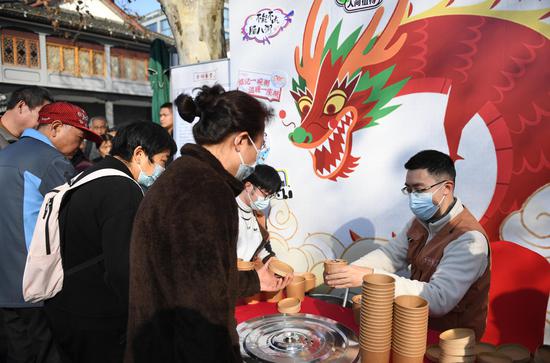Studies of terrorist attacks in China have mostly focused on assailants, with survivors grappling with lifelong trauma understudied and in dire need of academic and public attention, a researcher looking at China's counterterrorism efforts said on Thursday.
"They are also heroes, unsung heroes," said Zheng Liang, a professor of journalism at Jinan University in Guangzhou, Guangdong province. "They refused to be beaten down. They tried to stand up again. They tried to carry on with their lives."
The director of the university's Institute for Communication and Borderland Governance, Zheng initiated a project three years ago to document the oral histories of survivors of terrorist atrocities in places including the Xinjiang Uygur autonomous region, Yunnan province and Beijing in the early 2010s.
On Thursday, his team released a report based on face-to-face interviews with terrorism victims at a seminar on the university campus. The report, titled "Victims and Survivors of Terrorism in China: An Oral History", was the first of its kind in China.
"Starting from 2020, I have used my personal connections to find these people," he said. "We locate one person, and through that particular victim we eventually meet more.
"In academic terms, it's called snowball sampling."
He said the team had interviewed more than 60 victims over the past three years, and amassed more than 1 million Chinese characters of transcripts and 90 hours of audio and video clips.
Zheng said the task had not only been physically challenging — given that the interviewees were scattered across Xinjiang, which accounts for about a fifth of China's territory — but also psychologically difficult.
"They walked us through their traumatic experiences, and we actually felt the same with them — their pains and agonies and their unwillingness to accept the fact that they've lost their loved ones," Zheng said. "They reported that they couldn't sleep during the night because when they closed their eyes, their loved ones would appear.
"We suffered a certain level of trauma from hearing all their stories again and again."
Zheng said most of his interviewees found it difficult to come to terms with what had happened and why the tragedy had suddenly befallen them.
"They were innocent," he said. "The terrorists dragged all these innocent people into this event, so their voices deserve to be heard."
Zheng said the study would help the Chinese public and the outside world better understand what happened to the survivors more than a decade ago and better understand China's counterterrorism efforts.
Chinese approach to the counterterrorism — which is multifaceted, ranging from anti-poverty efforts to projects to create local jobs and promote schooling for young children — is tackling terrorism's root cause, he added.


















































 京公网安备 11010202009201号
京公网安备 11010202009201号